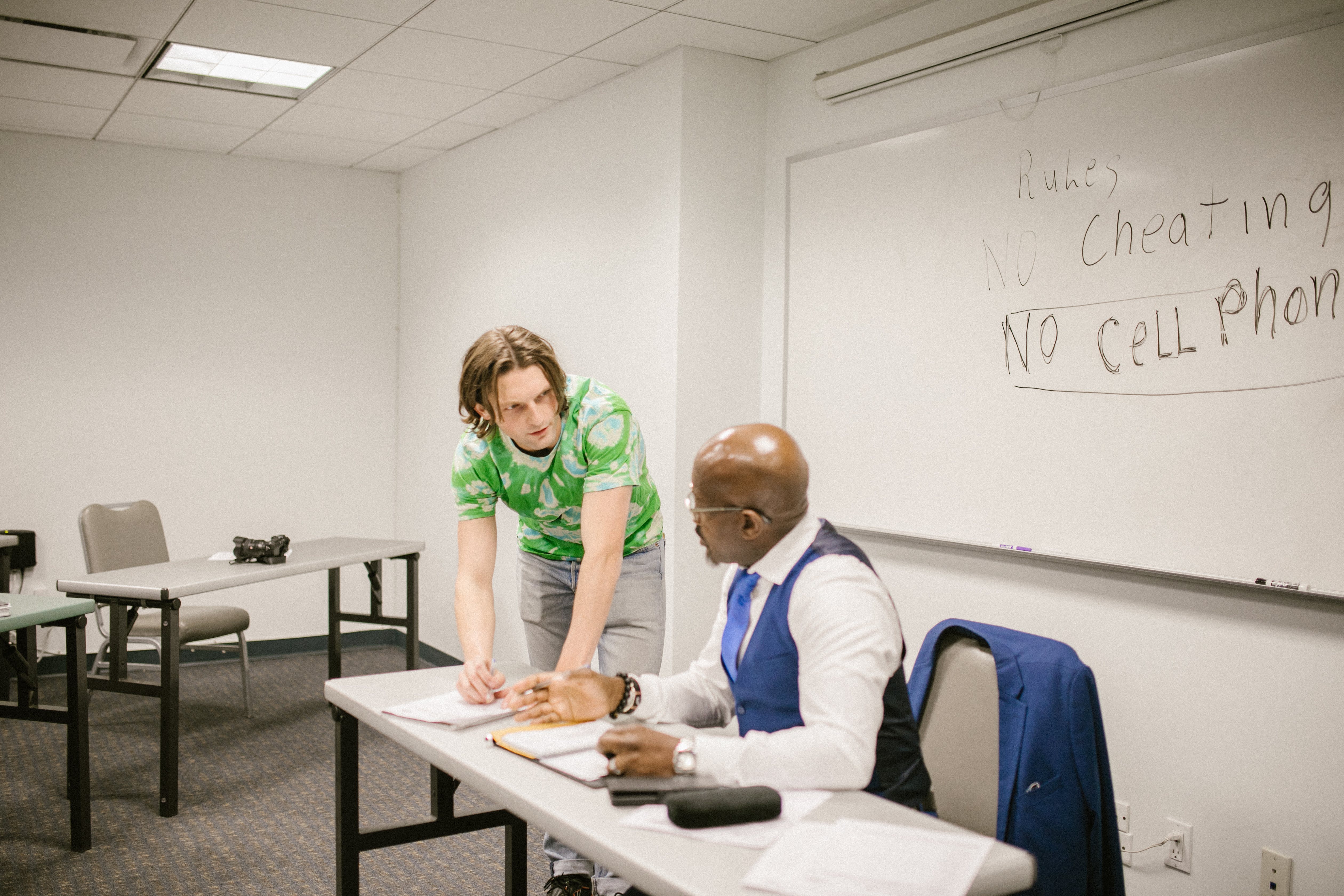· guide · 5 min read
How to Ask for Recommendation Letters
In this comprehensive guide, we'll explore the art of asking for recommendation letters, covering essential aspects from understanding their role in college applications to choosing the right recommenders, crafting a compelling request, and expressing gratitude.

As you embark on your journey toward higher education, scholarships, summer programs, or internships, one crucial element can be a tie-breaker for your application—recommendation letters. These letters serve as a testament to your character, abilities, and potential, providing valuable insights to those evaluating your application. In this blog post, we’ll break down the process of asking for recommendation letters into simple steps, helping you navigate this important aspect of your academic and professional life.
Why Recommendation Letters Matter
Before getting into the nitty-gritty of asking for recommendation letters, let’s understand why they are so crucial. Whether you’re applying to college, seeking scholarships, or applying for various programs, recommendation letters provide a more comprehensive view of who you are beyond grades and test scores. They allow admissions officers or selection committees to gain insight into your personality, work ethic, and potential contributions to the community.
Recommendation Letters Beyond College Applications
While recommendation letters are often associated with college applications, they extend beyond the academic realm. Many opportunities, such as scholarships, summer programs, internships, and job applications, may require recommendation letters. These letters serve as endorsements, vouching for your capabilities and potential success in various settings.
Choosing the Right Person
Selecting the right individual to write your recommendation letter is crucial. Consider someone who knows you well and can speak to your strengths, achievements, and character. This could be a teacher, professor, or supervisor who has observed your work closely. Ensure that the person is not only familiar with your accomplishments but also capable of expressing them effectively in writing.
How to Ask
Approaching someone for a recommendation letter can be nerve-wracking, but a thoughtful and respectful request can make all the difference. Here’s a simple guide on how to ask:
-
Choose the Right Time and Place: When asking for a recommendation letter, timing and setting matter. Opt for a quiet and convenient time, ideally in person. If an in-person meeting is not possible, a well-crafted email can suffice.
-
Express Your Appreciation: Start the conversation by expressing gratitude for their guidance or teaching. Mention specific aspects of their class or work that you enjoyed. This not only shows sincerity but also provides context for your request. Ask for five minutes of their time.
-
Clearly State Your Request: Be direct and concise about what you’re asking for. For example, “I’ve really enjoyed your class, like when you [x] and [y]. I’m applying for [specific opportunity], and I was wondering if you would be willing to write me a strong recommendation letter?” Make sure to ask for a strong recommendation letter because if your recommender writes you an average or bad letter, it could diminish your chances greatly. Asking for a strong letter gives hesitant recommenders an unawkward way to refuse to write you a recommendation letter.
-
Be Thankful: Show your appreciation with something like “I understand this is a significant request, but having a strong recommendation from you would mean a lot to me and enhance my chances of [achieving the opportunity].”
Follow-Ups and Reminders:
After making your initial request, it’s crucial to follow up to ensure the process is moving forward. Give your recommender enough time to write the letter, but also be mindful of application deadlines. Here are some tips for follow-ups:
-
Provide Necessary Details: If your recommender agrees, supply them with any necessary information, such as deadlines, specific requirements, and your resume or personal statement. Send them a brag sheet and a personalized information sheet electronically or in person. Highlight what you want them to write about. This will make their task easier and ensure a more tailored recommendation.
-
Be Polite and Appreciative: When following up, express your gratitude for their time and effort. Acknowledge that you understand they are busy, but emphasize the importance of the recommendation for your goals.
-
Send a Gentle Reminder: As the deadline approaches, it’s acceptable to send a gentle reminder. Politely inquire about the status of the recommendation letter and offer any additional information they might need.
How to Thank Your Recommender:
Once your recommendation letter has been submitted, expressing gratitude is not only courteous but also strengthens your professional relationships. Consider these tips for thanking your recommender:
-
Handwritten Note: Consider sending a handwritten note for a more personal touch. Express your appreciation and mention how their support has influenced your journey. If a handwritten note is not possible, a prompt email expressing your gratitude is a courteous way to acknowledge your effort. Be specific about how their recommendation will impact your goals.
-
Update on Outcomes: If possible, update your recommender on the outcomes of your applications. Share the good news and express your continued gratitude for their contribution to your success.
What Now?
Asking for recommendation letters may seem daunting, but with careful consideration and a thoughtful approach, the process can be smoother and more successful. Remember to choose the right person, be clear and direct in your request, follow up appropriately, and express sincere gratitude. A well-crafted recommendation letter can open doors to exciting opportunities and pave the way for your future success.